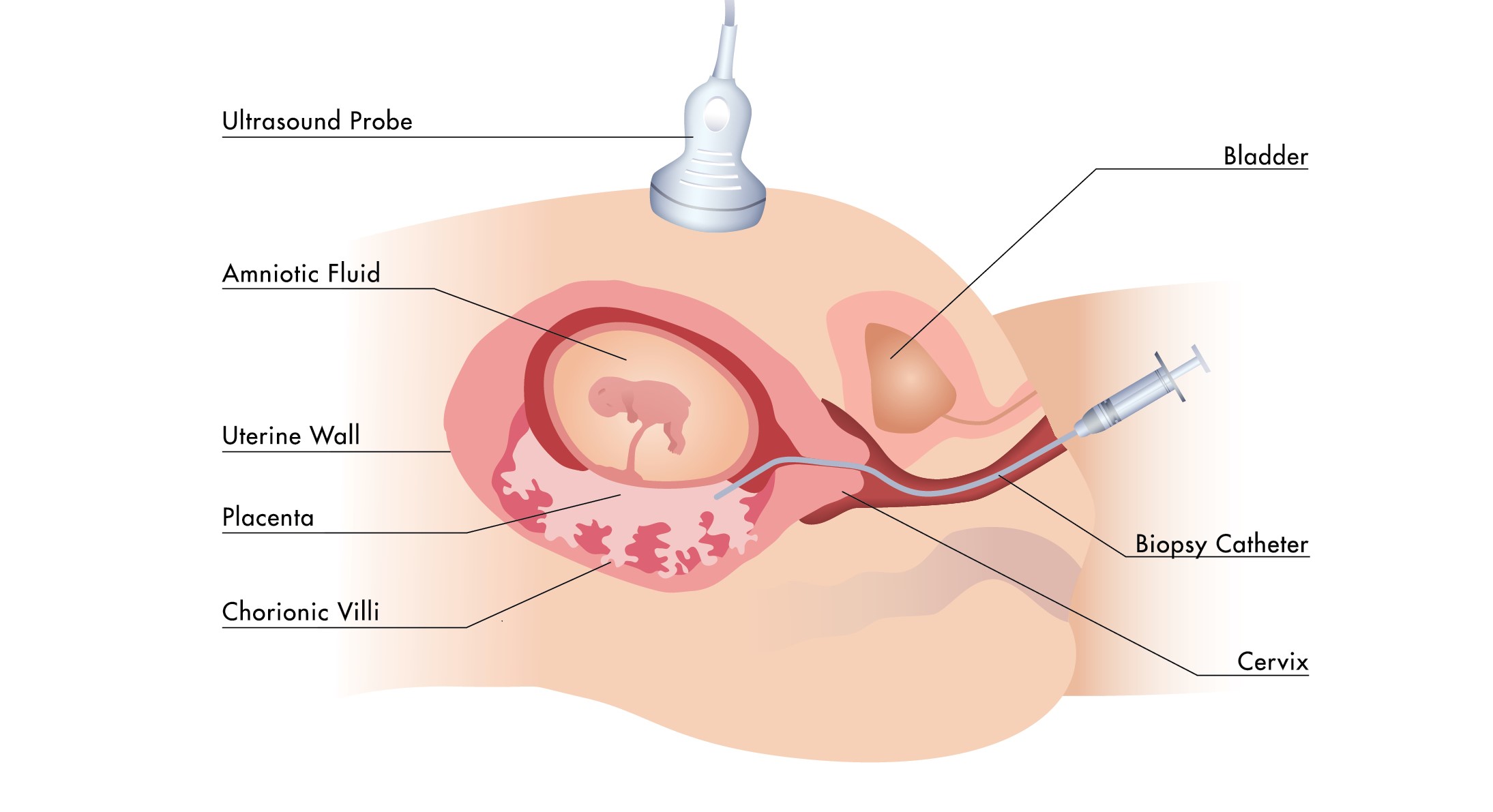What is Amniocentesis?
Amniocentesis is a prenatal test performed between weeks 15 and 20 of pregnancy. During this procedure, a small amount of amniotic fluid, which surrounds the fetus in the uterus, is carefully extracted. This fluid contains fetal cells and various proteins that can be analysed to detect genetic conditions. By examining these cells and proteins, doctors can provide valuable information about the baby’s health and development.
Procedure of Amniocentesis:
- Preparation: To choose a safe location for the needle insertion and to ascertain the position of the fetus, the procedure starts with an ultrasound.
- Extraction: To remove a little sample of amniotic fluid from the mother, a thin needle is delicately pushed through the mother's abdominal wall and into the uterus.
- Analysis: The fluid is subsequently transported to a lab for in-depth examination, where fetal cells are grown and checked for genetic anomalies.
Why is Amniocentesis Done?
Generally speaking, women who are more likely to give birth to a child who has a genetic problem should consider amniocentesis. Women over 35, those with a family history of genetic illnesses, and those whose prenatal test results have been abnormal are also included in this. It is capable of identifying ailments including spina bifida, cystic fibrosis, Down syndrome, and more.
Benefits and Risks:
Amniocentesis is a valuable diagnostic tool that provides highly reliable results for various conditions, but it does come with some risks. Because it's an invasive procedure, there’s a small chance of infection or miscarriage. It's important for parents to have a thorough discussion with their healthcare provider about these potential risks and benefits before deciding whether to proceed. This conversation can help ensure that they make an informed choice that aligns with their comfort levels and health goals.
What is Chorionic Villus Sampling (CVS)?
Another prenatal test that is carried out before amniocentesis is called Chorionic Villus Sampling, or CVS. It is usually carried out between the tenth and thirteenth weeks of pregnancy. Using CVS, a tiny sample of placental tissue which has the same genetic material as the fetus, allowing doctors to check for genetic conditions and other issues early on. This test offers vital information earlier in the pregnancy and can diagnose many of the same issues as amniocentesis.
Procedures of CVS:
- Preparation: To find the fetus and placenta, an ultrasound is performed initially, the same as in amniocentesis.
- Extraction: A tiny tube or needle is used to take a sample through the cervix (transcervical) or the abdominal wall (transabdominal), depending on where the placenta is positioned.
- Analysis: To find any genetic anomalies, a lab analyses the placental tissue sample.
Why is CVS Done?
CVS, like amniocentesis, is advised for women who are more likely to give birth to a child who has a genetic problem. It is capable of identifying diseases including sickle cell anemia, cystic fibrosis, Down syndrome, and other genetic abnormalities. Compared to amniocentesis, CVS has the benefit of early discovery, which enables quicker decision-making and, if necessary, intervention.
Benefits and Risks:
CVS offers the advantage of early implementation, which provides parents with more time to explore their options. However, like amniocentesis, CVS is an invasive procedure that carries risks, such as infection, miscarriage, and, if performed too early, potential limb abnormalities. Given these concerns, it’s essential for parents to have a detailed and supportive consultation with a healthcare professional. This ensures they are fully informed and can make the best decision for their situation.
Amniocentesis and Chorionic Villus Sampling (CVS) are important prenatal tests that help detect genetic conditions in a developing fetus. While both tests carry some risks, they offer valuable insights that can be crucial for early diagnosis and management of potential health issues. It's essential for parents to have open and detailed discussions with their healthcare providers to understand the benefits and risks, helping them make informed decisions that are best for their family's future.
At our clinic, we understand the importance of providing comprehensive and compassionate care for you and your baby. Whether you're considering amniocentesis or chorionic villus sampling (CVS), our specialised care team in fetal medicine is here to support you every step of the way. Our experienced professionals are dedicated to ensuring that you receive the best possible care, addressing any questions or concerns you might have with empathy and expertise. Your well-being and that of your baby are our top priorities, and we’re committed to guiding you through these important decisions with the utmost care and support.

